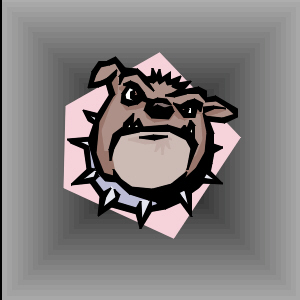In German the word is "Schadenfreude,"
which is malicious delight in another's
misfortune. Those people who indulge in
Schadenfreude will find that enjoying the
setback of another is outweighed
by unpleasantness they draw upon themselves.
A Dog found his way into a barn crowded with the horses and oxen who worked on the farm. One section only was empty and contained a Manger full of straw, awaiting the last team of Oxen who had labored hard the long day.
The Dog, who was sleepy after a full meal, sought a place to lie down, and although the straw in the Manger was prickly and uncomfortable and not to his liking at all, he settled there in an attempt to find sleep.
The Oxen returned to their stall, hungry and weary, to find the Dog lying atop their food. But when they asked him to find another place to sleep, he snarled at them and said, "I arrived here before you, and here I stay."
The Oxen replied, "But surely you are not able to sleep on that prickly straw." And the Dog answered,
"I care not. I have possession of this Manger and you can go elsewhere."
The Oxen went hungry and the Dog got no sleep. 
|  |
"Those whose Nature is cruel and insecure delight in the discomfort of others."
|
 |
|
|
A song of the '60s, "Who Will Answer?" by Ed Ames, has the lines:
"High upon a windswept ledge,
A figure teeters near the edge,
While shouts and calls from crowds below
Egg him on with "Go, man, go!"
Throughout time, Dogs in their Mangers have been enlivened
by the tragedies of other people. They will endure any discomfort themselves to block help for the distress of someone else.
Aesop's story is easy to read. But almost three thousand years later, why do we still not comprehend it?
|

